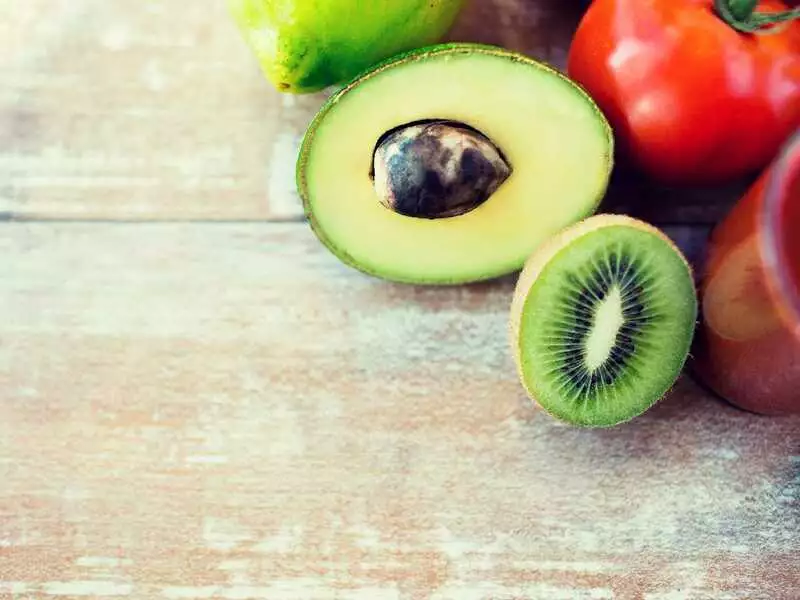The increasing popularity of organic living and being fit is spreading the idea of healthy eating. Along with this idea, the popularity of diets with better health outcomes is increasing. One such idea is veganism, understood not only as a diet devoid of zoonotic products, but also as a lifestyle. Like any diet, in order to be safe, veganism must be properly balanced and adapted to the body's needs. So far, no contraindications to this type of diet have been found, and it has even been shown to have a preventive effect in certain diseases.
Stereotypes
There is a common perception that a vegan diet is boring and monotonous. Many vegans, I'm sure, more than once face the question: "What do you eat?". Most people who are not familiar with the specifics of this diet recognise that you eat sprouts and lettuce on it, but representatives of the vegan community can confidently confirm that this is a misconception. This type of diet excludes animal products, i.e. meat, fish, milk and eggs. Products can be prepared in any way - boiled, baked, fried, marinated, pickled or eaten raw. In addition, veganism does not exclude sweets or a little alcohol in the diet (which, of course, is not advisable in any healthy diet). A plant-based diet is usually colourful, colourful and, in addition, more thoughtful. In order to balance meals appropriately, every vegan needs to have an elementary knowledge and, consequently, meals are prepared "with head" and the awareness of what one is actually eating is much greater than with traditional cuisine.
Cheaper or more expensive?
Another aspect of the vegan diet is also the stereotypically derived belief that a vegan diet is much more expensive than a traditional diet. Of course, any diet can be more or less expensive, depending on the wallet of the person concerned himself. And just as in a 'normal' diet, we do not consume many products because they are too expensive, in veganism we do not have to do so either.
Furthermore, it is also worth noting that price is many times associated with the quality of a given product, so we are equally familiar with the situation when, following a diet that does not exclude any products, we wonder which product to choose. In the context of veganism, it is a fact that ready-made vegan products are indeed quite expensive, but when you take the preparation of food on your shoulders, you may find that your wallet only benefits. For example, a kilo of chickpeas can cost from £7 to £12, soya from £5 to £12, lentils from £6 to £9 and peas from £3 to £4.
And what about immunity?
The basis for our body to function properly is proper nutrition. Diet is therefore the basic factor responsible for our immunity, hence the importance of a well-balanced and varied diet.
The most important thing for our immunity is that the diet is rational and wholesome. There must be a good balance between the proteins, fats and carbohydrates consumed, as well as minerals and vitamins. In addition, it is important to ensure that the diet is calorific according to our body's needs.

photo: panthermedia
Above all, therefore, knowledge about the products we eat should drive our choices. In the case of vegans, this knowledge is usually much greater and the choice of products more conscious and thoughtful. The vegetables, fruits, herbs and other plants consumed in a vegan diet have their own properties and provide our bodies with all the necessary nutrients. Its proper selection and balance are the basis for the proper functioning of the body. [1]
Scientific position
The American Dietetic Association and dietitians in Canada have issued an opinion in which a stance on vegetarian and vegan diets is defined.
According to the above, properly planned vegan and vegetarian diets are healthy, meet the body's requirements for adequate nutrition and help to prevent and treat certain diseases. As noted, there is a growing interest in these types of diets, as well as more and more products on our shelves adapting to these needs. In addition, there is a trend towards the emergence of restaurants and establishments that serve vegetarian or vegan dishes.
According to the stated position, there are no contraindications to a vegan diet at any stage of development, as well as during pregnancy or lactation. Both vegan and vegetarian diets carry many benefits, such as providing the body with adequate saturated fat, lower cholesterol, higher levels of fibre, magnesium, potassium, folic acid, antioxidants. A lower incidence of cardiovascular disease, type 2 diabetes, prostate and colon cancer is also noted among vegans. However, if someone expresses interest in switching to a vegan diet, they should seek the advice of a nutritionist to receive expert information on the appropriate choice of products in the diet. [4]









